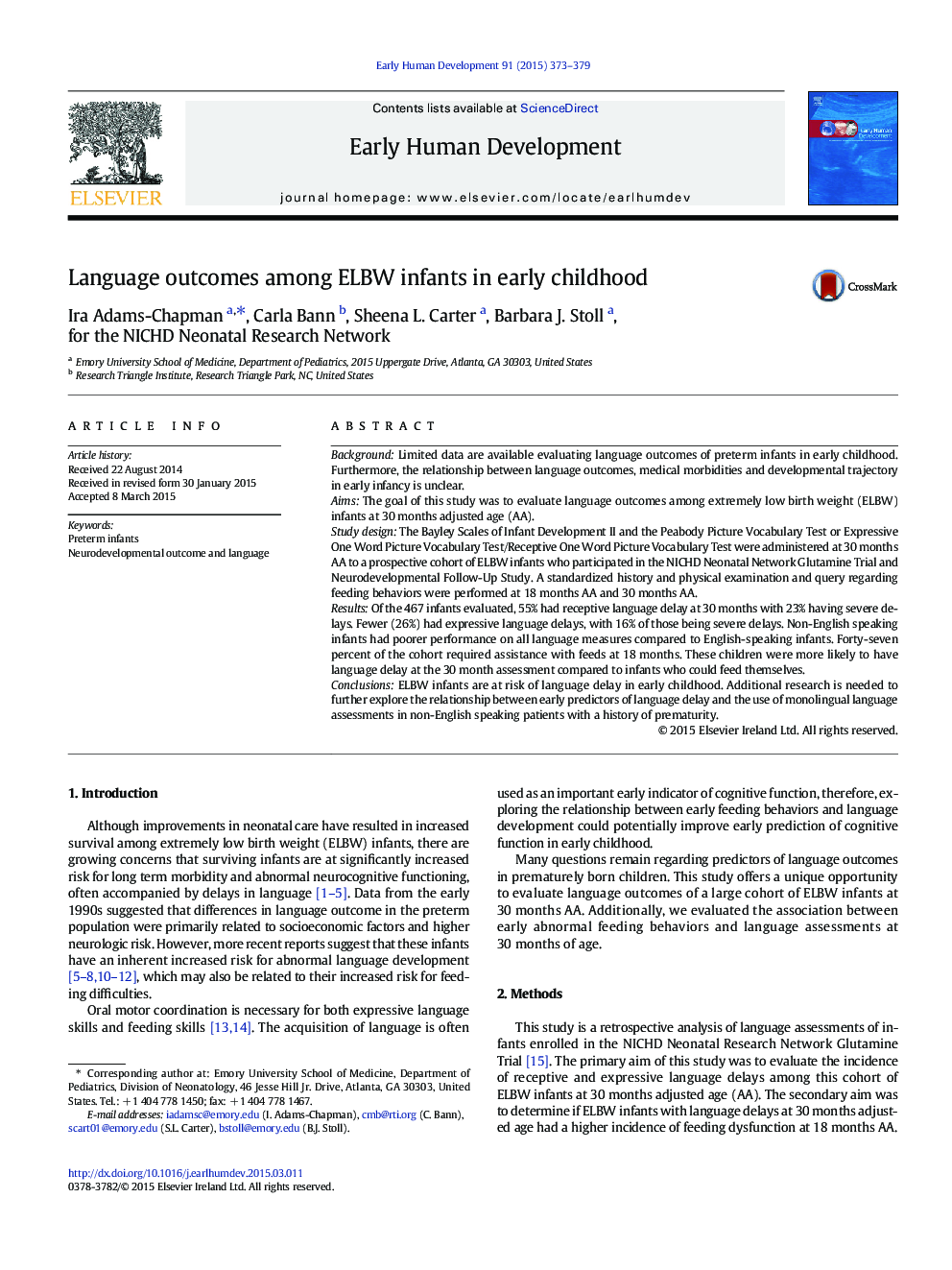| Article ID | Journal | Published Year | Pages | File Type |
|---|---|---|---|---|
| 3916432 | Early Human Development | 2015 | 7 Pages |
•Developmental outcomes at 18 and 30 months adjusted age in a cohort of extremely low birth weight children.•Language performance was evaluated at 30 months.•Children with a history of preterm birth are at risk for language delays in early childhood.•Feeding difficulties at 18 months are associated with expressive and receptive language delay at 30 months.
BackgroundLimited data are available evaluating language outcomes of preterm infants in early childhood. Furthermore, the relationship between language outcomes, medical morbidities and developmental trajectory in early infancy is unclear.AimsThe goal of this study was to evaluate language outcomes among extremely low birth weight (ELBW) infants at 30 months adjusted age (AA).Study designThe Bayley Scales of Infant Development II and the Peabody Picture Vocabulary Test or Expressive One Word Picture Vocabulary Test/Receptive One Word Picture Vocabulary Test were administered at 30 months AA to a prospective cohort of ELBW infants who participated in the NICHD Neonatal Network Glutamine Trial and Neurodevelopmental Follow-Up Study. A standardized history and physical examination and query regarding feeding behaviors were performed at 18 months AA and 30 months AA.ResultsOf the 467 infants evaluated, 55% had receptive language delay at 30 months with 23% having severe delays. Fewer (26%) had expressive language delays, with 16% of those being severe delays. Non-English speaking infants had poorer performance on all language measures compared to English-speaking infants. Forty-seven percent of the cohort required assistance with feeds at 18 months. These children were more likely to have language delay at the 30 month assessment compared to infants who could feed themselves.ConclusionsELBW infants are at risk of language delay in early childhood. Additional research is needed to further explore the relationship between early predictors of language delay and the use of monolingual language assessments in non-English speaking patients with a history of prematurity.
